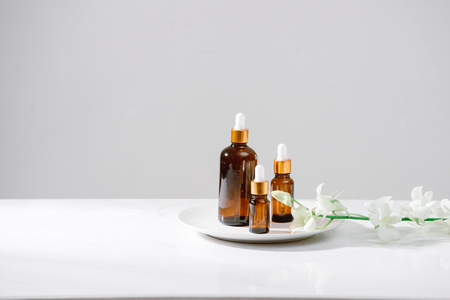1. Understanding Antioxidants
Antioxidants have become a buzzword in the world of skincare, especially when it comes to anti-aging products. But what exactly are antioxidants, and why do they matter for your skin?
What Are Antioxidants?
Antioxidants are molecules that help protect your body from damage caused by free radicals. Free radicals are unstable molecules created by environmental stressors like UV rays, pollution, and even your bodys natural metabolic processes. When free radicals build up, they can cause oxidative stress, which leads to premature aging and skin damage.
Common Sources of Antioxidants
You can find antioxidants in many everyday foods and skincare ingredients. Here’s a simple breakdown:
| Antioxidant | Natural Source | Skincare Ingredient Name |
|---|---|---|
| Vitamin C | Citrus fruits, bell peppers | Ascorbic Acid |
| Vitamin E | Nuts, seeds, leafy greens | Tocopherol |
| Green Tea Extract | Green tea leaves | Camellia Sinensis Extract |
| Coenzyme Q10 | Whole grains, fish | Ubiquinone |
| Ferulic Acid | Rice bran, oats, apples | Ferulic Acid |
| Niacinamide (Vitamin B3) | Poultry, fish, grains | Niacinamide |
How Antioxidants Protect Your Skin
Your skin is constantly exposed to the environment — sunlight, pollution, and even stress can contribute to the formation of free radicals. Antioxidants work by neutralizing these free radicals before they can cause harm. This helps reduce visible signs of aging like fine lines, wrinkles, dark spots, and loss of elasticity. By using anti-aging skincare products packed with antioxidants, you’re giving your skin extra support to stay healthy-looking and resilient against daily damage.
2. How Free Radicals Accelerate Aging
What Are Free Radicals?
Free radicals are unstable molecules that form in our bodies due to normal processes like breathing, as well as external factors such as pollution, UV rays, and cigarette smoke. These molecules are always looking for electrons to stabilize themselves, and in doing so, they can damage healthy skin cells.
How Do Free Radicals Affect Skin Aging?
When free radicals interact with the skin, they can break down collagen and elastin—the proteins that keep your skin firm and elastic. This process leads to visible signs of aging like wrinkles, sagging, and dullness. Over time, constant exposure to free radicals speeds up the aging process, making it harder for the skin to repair itself and maintain a youthful glow.
Common Sources of Free Radicals
| Source | Description | Impact on Skin |
|---|---|---|
| Sun Exposure (UV rays) | Spending time outdoors without sunscreen | Boosts free radical production, leading to premature wrinkles |
| Pollution | Exposure to smog or smoke in the air | Irritates skin and increases oxidative stress |
| Cigarette Smoke | Both direct smoking and secondhand smoke | Destroys collagen and slows healing |
| Poor Diet | Lack of fruits, veggies, and antioxidants | Makes skin more vulnerable to damage |
Why Neutralizing Free Radicals Matters for Youthful Skin
If free radicals are left unchecked, they keep damaging skin cells day after day. That’s why neutralizing them is so important for keeping skin looking young. Antioxidants in skincare products act like tiny bodyguards: they donate electrons to free radicals, stopping them from causing harm. Using products rich in antioxidants helps protect your skin from everyday stressors—so you can enjoy a healthier, fresher look longer.
![]()
3. Common Antioxidants Used in Skincare
When shopping for anti-aging skincare products in the United States, you’ll often see antioxidants listed as key ingredients. These powerful compounds help protect the skin from environmental damage and keep it looking younger for longer. Below, we introduce some of the most popular antioxidants found in American skincare products and highlight their unique benefits.
Vitamin C (Ascorbic Acid)
Vitamin C is one of the most well-known antioxidants in skincare. It is loved by many Americans for its ability to brighten skin tone and boost collagen production. Vitamin C also helps reduce the appearance of dark spots caused by sun exposure—a common concern for those living in sunny areas like California or Florida.
Key Benefits of Vitamin C
- Brightens dull skin
- Evens out skin tone
- Supports collagen synthesis for firmer skin
- Protects against UV-related free radical damage
Vitamin E (Tocopherol)
Vitamin E is another favorite antioxidant, especially for its soothing and moisturizing properties. Many American-made creams and serums include Vitamin E to help calm irritated skin and strengthen the skin’s natural barrier. It also works well when combined with Vitamin C, making both ingredients even more effective.
Key Benefits of Vitamin E
- Deeply hydrates dry or sensitive skin
- Reduces signs of inflammation and redness
- Enhances protection against environmental stressors
- Works synergistically with Vitamin C
Green Tea Extract (Camellia Sinensis)
Green tea extract is a popular ingredient in American skincare, especially among people seeking natural and gentle solutions. Rich in polyphenols like EGCG, green tea extract helps reduce puffiness and protects against visible aging caused by pollution and sunlight—two common issues in busy U.S. cities.
Key Benefits of Green Tea Extract
- Soothes irritated or sensitive skin
- Fights free radicals linked to premature aging
- Helps reduce puffiness and redness
- Naturally calms stressed skin after sun exposure
Comparison Table: Popular Antioxidants in American Skincare Products
| Antioxidant | Main Benefit | Common Use in U.S. Skincare |
|---|---|---|
| Vitamin C | Brightening & Collagen Boosting | Serums, Moisturizers, Spot Treatments |
| Vitamin E | Hydration & Calming Effect | Creams, Lotions, After-Sun Care |
| Green Tea Extract | Puffiness Reduction & Pollution Defense | Toners, Masks, Daily Moisturizers |
The Takeaway on Antioxidants in U.S. Skincare Products
If you’re looking to address signs of aging while living in America, choosing skincare products rich in these antioxidants can make a big difference. Whether you spend a lot of time outdoors or simply want to keep your complexion glowing, adding Vitamin C, Vitamin E, or green tea extract to your routine is a smart move for healthier-looking skin.
4. Effectiveness of Antioxidant-Rich Products
What Does Science Say?
Antioxidants have become a buzzword in skincare, but what does the research really show? Studies have confirmed that antioxidants like Vitamin C, Vitamin E, and green tea extract can help protect the skin from environmental stressors such as UV rays and pollution. These stressors are known to speed up the aging process, causing wrinkles, dark spots, and loss of skin elasticity.
Real-World Results
People who use antioxidant-rich skincare products often notice a brighter, more even skin tone and fewer visible fine lines. Dermatologists in the United States recommend incorporating antioxidants into daily skincare routines for their proven ability to neutralize free radicals—unstable molecules that damage skin cells and accelerate aging.
Key Benefits Backed by Science
| Antioxidant | Main Benefit | Scientific Evidence |
|---|---|---|
| Vitamin C | Brightens skin, boosts collagen | Reduces hyperpigmentation and improves firmness (Journal of Clinical and Aesthetic Dermatology, 2017) |
| Vitamin E | Protects against sun damage | Shields skin from UVB damage when paired with sunscreen (American Academy of Dermatology) |
| Green Tea Extract | Soothes inflammation, reduces redness | Lowers oxidative stress in skin cells (Journal of the American Academy of Dermatology, 2019) |
| Coenzyme Q10 (CoQ10) | Smooths wrinkles, energizes skin cells | Improves skin texture and elasticity (Biofactors Journal, 2015) |
User Experiences in the U.S.
Many Americans find that serums or creams containing these antioxidants make their skin look healthier over time. While results vary from person to person, consistent use—usually at least four to eight weeks—shows the best improvement. It’s also important to note that layering antioxidant products with sunscreen offers even stronger protection against premature aging.
5. Incorporating Antioxidants into Your Skincare Routine
Why Antioxidants Matter in Your Daily Skincare
Antioxidants are powerhouse ingredients in anti-aging skincare, helping protect your skin from environmental stressors like pollution, UV rays, and even blue light from screens. By neutralizing free radicals, antioxidants can slow down visible signs of aging such as fine lines, wrinkles, and dullness.
Tips for Adding Antioxidant Products to Your Routine
- Start Simple: If you’re new to antioxidants, begin with a serum or moisturizer containing well-known options like Vitamin C or Vitamin E.
- Layer Correctly: Apply antioxidant serums after cleansing and before moisturizing to maximize absorption.
- Morning Use is Key: Using antioxidants in the morning helps protect your skin from daily exposure to sun and pollution.
- Pair with Sunscreen: Antioxidants work even better when used alongside a broad-spectrum SPF.
- Patch Test New Products: Always try new products on a small area first to check for sensitivity or irritation.
Popular Antioxidants and How to Use Them
| Antioxidant | Main Benefit | Common Product Types | When to Use |
|---|---|---|---|
| Vitamin C | Brightens skin, evens tone | Serum, moisturizer | Morning |
| Vitamin E | Smooths and soothes skin | Cream, oil | Morning or night |
| Ferulic Acid | Boosts effects of vitamins C & E | Serum blends | Morning |
| Green Tea Extract | Calms and protects skin | Toner, serum, mask | Anytime |
| Resveratrol | Powers overnight repair | Cream, serum | Night |
Your Sample Morning Routine with Antioxidants:
- Cleanser: Start with a gentle face wash to prep your skin.
- Antioxidant Serum: Apply a Vitamin C serum for brightening and protection.
- Moisturizer: Use one with added antioxidants if possible.
- Sunscreen: Finish with a broad-spectrum SPF 30+ for full protection.
A Few Extra Pointers for Americans:
- If you live in a city or spend lots of time outdoors, antioxidant protection is especially important due to higher pollution and UV exposure.
- You don’t have to splurge—there are great antioxidant products at every price point at local drugstores or big retailers like Target and Ulta.
- If your skin is sensitive, look for fragrance-free formulas and consult a dermatologist if you’re unsure which antioxidant works best for you.


